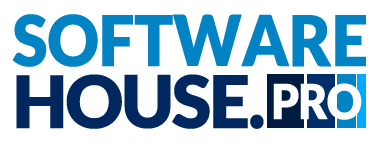Web applications play a vital role in today's digital landscape, allowing businesses to deliver dynamic and interactive experiences to their users. When it comes to choosing the right technology stack for web development, PHP stands as one of the most popular and widely adopted options. In this article, we will explore the reasons why PHP is a compelling choice for building web applications and why it continues to be a preferred language among developers worldwide.
Proven Track Record:
PHP has a long and successful history in the world of web development. It was initially created in 1994 and has since evolved into a mature and robust language. Throughout its existence, PHP has powered countless websites and web applications, including some of the largest and most popular platforms on the internet. Its longevity and widespread adoption are a testament to its reliability and effectiveness.
Easy Learning Curve:
One of the key advantages of PHP is its relatively gentle learning curve. The language is designed to be user-friendly and accessible to developers of all skill levels. Whether you are a beginner or an experienced programmer, PHP provides a straightforward syntax and comprehensive documentation that facilitates quick and efficient development. Additionally, PHP shares similarities with other programming languages, making it easier for developers to transition and leverage their existing knowledge.
Rich Ecosystem:
PHP benefits from a thriving ecosystem of frameworks, libraries, and tools that enhance development productivity and streamline the creation of web applications. Frameworks like Laravel, Symfony, and CodeIgniter provide a structured and organized approach to development, offering pre-built components and functionalities that accelerate the process. Moreover, the vast collection of open-source libraries and extensions available for PHP allows developers to leverage existing solutions, reducing development time and effort.

Broad Community Support:
PHP boasts a massive and vibrant community of developers worldwide. This active community provides valuable resources, support, and a wealth of knowledge through forums, online communities, and conferences. The community's contributions range from sharing code snippets and best practices to developing innovative solutions and pushing the boundaries of PHP. The strong community support ensures that PHP remains relevant and constantly evolving to meet the changing needs of web development.
Scalability and Performance:
PHP is highly scalable and performs exceptionally well, even when handling large volumes of traffic and data. With advancements in the language and improvements in web server technologies, PHP has become more efficient and capable of handling demanding workloads. Additionally, PHP offers built-in caching mechanisms, such as opcode caching and data caching, which can significantly boost application performance. These features make PHP a reliable choice for building web applications that can handle growing user bases and increasing data demands.
Database Compatibility:
PHP seamlessly integrates with a wide range of database management systems, including MySQL, PostgreSQL, Oracle, and more. This compatibility allows developers to choose the database that best suits their project requirements and leverage its capabilities. PHP provides robust database connectivity options and offers a rich set of functions for executing queries, managing transactions, and interacting with the database. This flexibility and versatility make PHP an ideal choice for web applications that rely heavily on data storage and retrieval.
Security Measures:
Security is a critical aspect of web application development, and PHP offers a range of security features and practices to protect applications from common vulnerabilities. The language provides built-in functions for input validation, encryption, and secure data handling. Furthermore, PHP frameworks often come with security modules and libraries that enforce best practices and mitigate security risks. By adhering to secure coding practices and leveraging these features, developers can build robust and secure web applications.
Cost-Effective Solution:
From a business perspective, PHP offers cost-effective web development solutions. PHP itself is an open-source language, meaning it is free to use and has no licensing costs. Additionally, the vast array of open-source frameworks and libraries available for PHP eliminates the need for building everything from scratch, reducing development time and costs. Moreover, the abundance of skilled PHP developers in the market ensures competitive pricing and availability of resources for web development projects.
Cross-Platform Compatibility:
PHP offers excellent cross-platform compatibility, allowing web applications built with PHP to run seamlessly on various operating systems, including Windows, Linux, macOS, and more. This flexibility ensures that your web application can reach a broader audience and be accessible to users regardless of their preferred platform.
Integration Capabilities:
PHP provides robust integration capabilities, allowing seamless integration with third-party services, APIs, and platforms. Whether you need to integrate with payment gateways, social media platforms, CRM systems, or other external services, PHP makes it easy to establish connections and exchange data. This integration flexibility enables businesses to create feature-rich web applications that interact with a wide range of services and enhance the overall user experience.
Rapid Prototyping:
PHP's simplicity and ease of use make it an ideal choice for rapid prototyping and iterative development. The language allows developers to quickly create functional prototypes and gather feedback from stakeholders, enabling faster iterations and improvements. This agile development approach saves time and resources during the early stages of a project, helping businesses validate ideas and make informed decisions before investing in full-scale development.
Continuous Improvement:
The PHP community is highly active and continuously working on improving the language and its ecosystem. Regular updates, bug fixes, and new features ensure that PHP remains a modern and relevant choice for web development. Additionally, community-driven initiatives and frameworks contribute to the evolution and enhancement of PHP, providing developers with the tools and capabilities needed to build cutting-edge web applications.
Support for Modern Web Technologies:
PHP has embraced modern web technologies and standards, making it well-suited for building modern web applications. It offers support for HTML5, CSS3, JavaScript, and other emerging technologies, allowing developers to create engaging and interactive user interfaces. Furthermore, PHP integrates seamlessly with popular JavaScript frameworks and libraries, such as AngularJS and React, enabling developers to build robust frontend-backend architectures.
Extensive Documentation and Resources:
PHP benefits from extensive documentation and a wealth of online resources that support developers throughout the development process. The official PHP documentation provides comprehensive guidance on language features, functions, and best practices. Additionally, there are numerous online tutorials, blogs, forums, and video tutorials dedicated to PHP, ensuring that developers have access to a vast knowledge base for troubleshooting, learning, and expanding their skills.
Backward Compatibility:
PHP maintains strong backward compatibility, ensuring that applications built with older versions of the language continue to function seamlessly on newer PHP versions. This compatibility allows businesses to upgrade their PHP environments and take advantage of the latest features and performance improvements without worrying about breaking their existing applications. It provides stability and peace of mind for businesses that rely on PHP for their web applications.
Easy Maintenance and Troubleshooting:
PHP's clear and readable syntax, along with its well-structured frameworks, make maintenance and troubleshooting relatively straightforward. Code readability simplifies the debugging process, allowing developers to quickly identify and fix issues. Additionally, the availability of debugging tools, profilers, and error handling mechanisms makes it easier to track down and resolve problems, ensuring the smooth operation of web applications.
Community Contributions:
The PHP community is known for its active participation and contributions to the ecosystem. Developers worldwide continuously share their code, libraries, and frameworks, enriching the PHP landscape and providing solutions to common development challenges. This collaborative spirit fosters innovation and empowers developers to leverage existing solutions, accelerating development timelines and reducing development efforts.
Flexibility for Various Project Sizes:
PHP offers the flexibility to handle projects of various sizes and complexity. Whether you're building a simple blog, an e-commerce platform, or a large-scale enterprise application, PHP provides the necessary tools and frameworks to support your project requirements. From lightweight micro-frameworks to robust enterprise-grade frameworks, PHP caters to a wide range of project sizes and can scale along with your business needs.
Community Support and Networking Opportunities:
Being one of the most widely used programming languages, PHP boasts a vibrant community of developers and enthusiasts. Engaging with the PHP community through local meetups, conferences, and online forums provides opportunities for networking, learning, and sharing experiences. The community support fosters growth, collaboration, and knowledge exchange, enabling developers to stay updated with the latest trends, best practices, and industry insights.
Long-Term Viability:
PHP's longevity and widespread adoption across industries make it a safe and reliable choice for web development. Its proven track record and continuous evolution ensure its long-term viability and support. With a large pool of PHP developers and a vast ecosystem, businesses can confidently choose PHP as the foundation for their web applications, knowing that they will have access to the necessary expertise and resources for ongoing maintenance, updates, and enhancements.
In conclusion, PHP offers a range of benefits that make it a compelling choice for web application development. Its simplicity, scalability, database compatibility, vast ecosystem, cost-effectiveness, and community support contribute to its popularity among developers and businesses alike. Whether you're building a small website, an e-commerce platform, or a complex enterprise application, PHP provides the tools and flexibility to meet your project requirements. By harnessing PHP's strengths and leveraging the vast resources available, businesses can create robust, secure, and high-performing web applications that drive their digital success.







